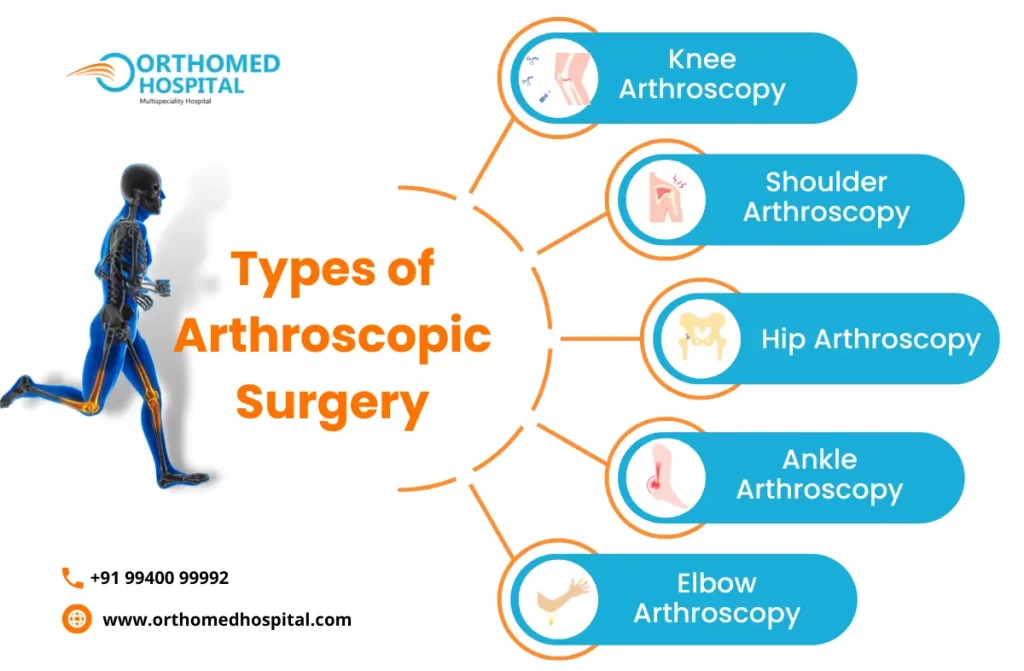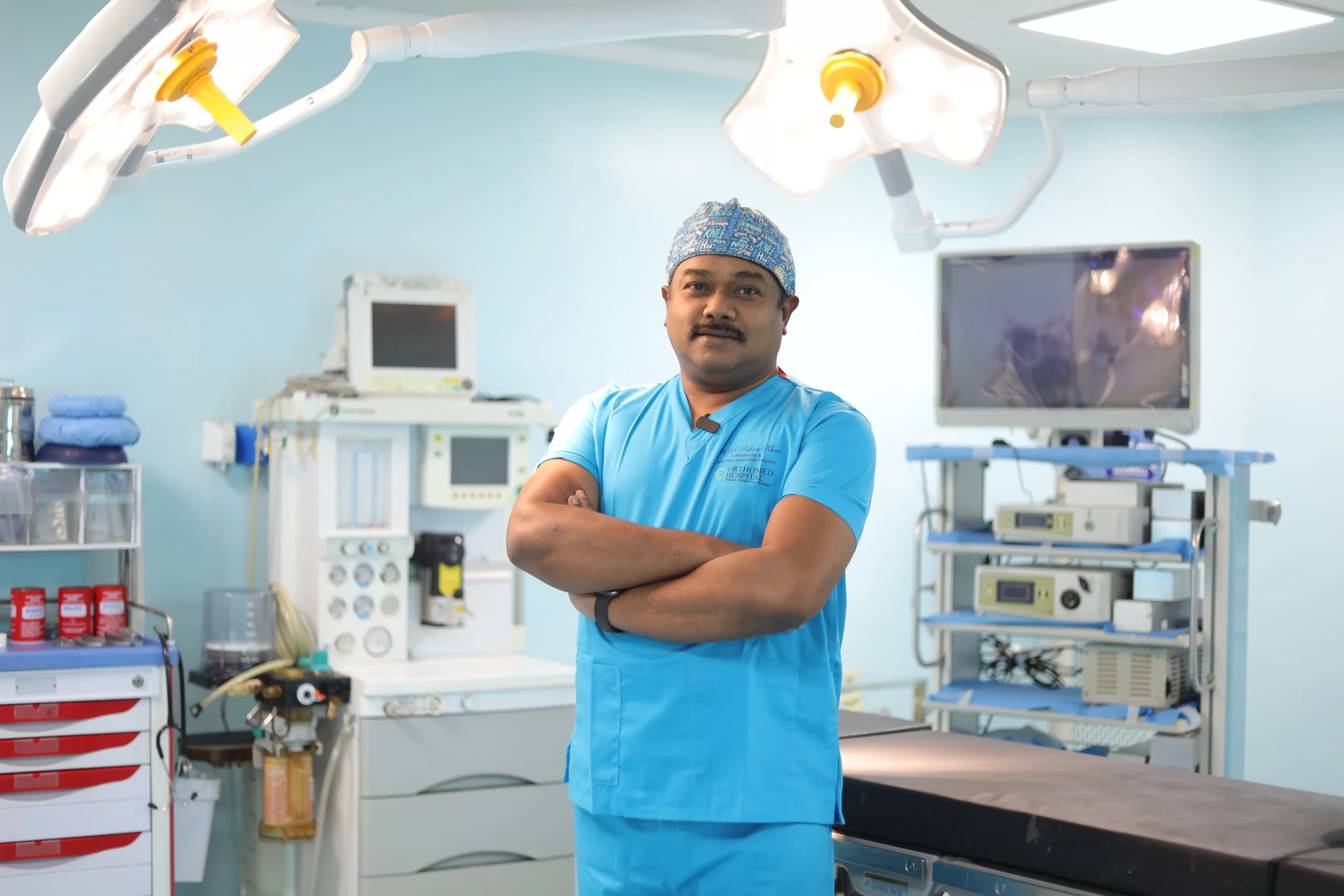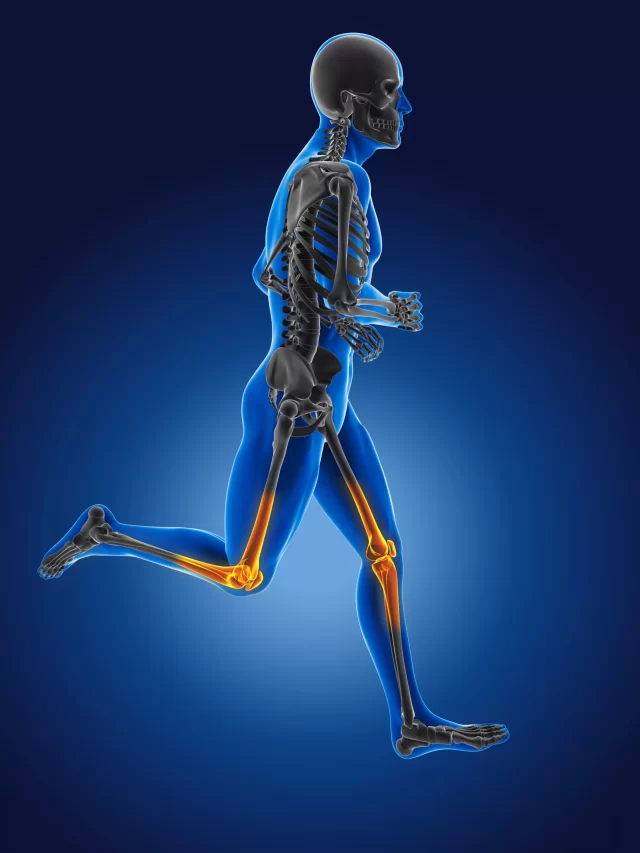Arthroscopy is a specialized diagnostic and surgical technique within the field of orthopedics. It is a minimally invasive procedure that allows orthopedic surgeons to visualize, diagnose, and treat various joint-related conditions. The best arthroscopic surgeon in Chennai is highly skilled in arthroscopic techniques and offers a comprehensive range of treatment options using this approach.
What is Arthroscopy?
Arthroscopy is a minimally invasive surgical procedure that involves inserting a small camera and instruments through tiny incisions to diagnose and treat joint-related issues. Commonly used for knee and shoulder problems, arthroscopy enables surgeons to visualize the joint interior, repair damaged tissues, and address conditions such as torn ligaments or cartilage. This technique reduces recovery time and discomfort compared to traditional open surgeries.
Who is an Arthroscopic Surgeon?
An arthroscopic surgeon is a specialized orthopedic surgeon who performs minimally invasive arthroscopic surgeries. Using an arthroscope inserted through small incisions, they diagnose and treat various joint conditions, such as ligament tears, cartilage injuries, and joint inflammation.
The best arthroscopic surgeon in Chennai has extensive knowledge of the musculoskeletal system and uses specialized instruments to repair or reconstruct damaged structures within the joints. Their expertise allows for smaller incisions, quicker recovery times, and reduced complications compared to open surgery.

Indications that You Should See an Arthroscopic Surgeon
There are several indications or signs that may suggest you should see an arthroscopy surgeon in Chennai. These include:
- Persistent joint pain.
- Limited range of motion.
- Joint instability.
- Swelling and inflammation.
- Joint clicking or locking.
- Failed conservative treatments.
If you are experiencing any of the above-mentioned symptoms, you should schedule an appointment with the best arthroscopic surgeon in Chennai like Dr. Subair Khan from Orthomed Hospital to get comprehensive treatment.
Best Arthroscopic Surgeon in Chennai
Dr. A. Subair Khan
(M. S, M. Ch (Ortho), F.I.A.A)

Dr. A. Subair Khan, an esteemed arthroscopy specialist in Chennai, is widely acclaimed for his exceptional proficiency in arthroscopy surgeries and sports medicine. With a remarkable track record encompassing over 3000 successful arthroscopy surgeries conducted across Tamil Nadu, Dr. Khan has established himself as a trusted and highly skilled practitioner in the region.
His expertise extends to a wide range of complex procedures involving the shoulder, knee, ankle, elbow, and hip joints, positioning him as an innovative and accomplished surgeon. Furthermore, his significant contributions to the field of orthopedic surgery are exemplified by his role as Secretary of the Tamilnadu Arthroscopy Society, solidifying his stature and dedication to advancing the discipline.
Available Time: 24X7
Address: New No. 85, Royapettah High Road, Royapettah, Chennai – 600014.
Diagnostic Procedures of Arthroscopic Surgeon
Arthroscopic surgeons utilize diagnostic procedures such as arthroscopy to visualize joint structures, identify abnormalities, and diagnose conditions. They may perform joint fluid analysis, order imaging studies (X-rays, MRI, CT scans), administer diagnostic injections, conduct physical examinations, and, in certain cases, perform biopsies.
These procedures handled by the best arthroscopic surgeon in Chennai help evaluate the joint function, identify sources of pain or dysfunction, and provide insights into the presence of infections, inflammations, fractures, arthritis, or other abnormalities.
Treatment Procedures Handled by Arthroscopic Surgeon
Arthroscopic surgery is a minimally invasive procedure performed by an arthroscopic surgeon to diagnose and treat various joint-related conditions. Using a specialized instrument called an arthroscope, the arthroscopy specialist in Chennai makes small incisions around the joint and inserts the arthroscope to visualize the internal structures.
They can also perform a range of procedures using this technique. Commonly treated areas include the knee, shoulder, hip, ankle, and wrist joints. In the knee, procedures such as meniscus repair, ligament reconstruction (e.g., ACL or PCL), cartilage repair, and synovectomy can be performed arthroscopically. Shoulder procedures may involve rotator cuff repair, labral repair, or removal of bone spurs.
The arthroscopic surgeon can also address conditions like loose bodies in the joint, joint infections, impingement syndrome, and inflamed synovial tissue. They may perform debridement, which involves removing damaged or inflamed tissues, or joint irrigation to wash out debris and improve joint function.
Advantages of arthroscopic surgery include smaller incisions, reduced tissue trauma, quicker recovery, and potentially lower complication rates compared to open surgery. However, not all conditions can be treated arthroscopically, and the best arthroscopic surgeon in Chennai will determine the most appropriate approach based on the individual case.
Pre-Arthroscopy Procedure: Preparing for Joint Health
Arthroscopy, a minimally invasive surgical procedure, is a vital tool in diagnosing and treating various joint conditions, such as knee, shoulder, or hip problems. Before undergoing arthroscopy, patients need to follow a series of pre-operative steps to ensure the procedure’s success and minimize risks.
Consultation and Evaluation: The journey to arthroscopy typically begins with a consultation with an orthopedic surgeon. During this initial appointment, the best arthroscopic surgeon in Chennai evaluates the patient’s medical history, discusses the symptoms and issues related to the joint in question, and performs a physical examination. This evaluation helps determine whether arthroscopy is the appropriate course of action.
Imaging and Diagnostic Tests: In many cases, diagnostic imaging tests such as X-rays, magnetic resonance imaging (MRI), or computed tomography (CT) scans are ordered to provide a clearer picture of the joint’s condition. These tests can reveal structural abnormalities, tissue damage, or the presence of loose bodies within the joint, helping the surgeon plan the arthroscopic procedure more effectively.
Medical Evaluation: A comprehensive medical evaluation is essential to assess the patient’s overall health and any underlying medical conditions that might affect the surgery or anesthesia. Patients may be asked about allergies, medications they are currently taking, previous surgeries, and any chronic health issues. This information is crucial for customizing the anesthesia plan and ensuring patient safety during the procedure.
Medication Adjustments: If the patient is taking medications such as blood thinners or nonsteroidal anti-inflammatory drugs (NSAIDs), the surgeon and anesthesiologist will discuss whether and when to stop or adjust these medications prior to arthroscopy. This is important to reduce the risk of excessive bleeding during the procedure.
Fasting: Patients are typically instructed to fast for a specific period before the scheduled arthroscopy. This fasting period, which usually includes abstaining from food and liquids for a certain number of hours, is essential to ensure an empty stomach during anesthesia administration. Adhering to fasting guidelines as advised by the best arthroscopic surgeon in Chennai is crucial to minimize the risk of complications during surgery.
Hygiene and Skin Preparation: On the day of the procedure, patients are advised to shower or bathe using an antibacterial soap to reduce the risk of infection. Clean, dry skin is essential to minimize the chance of complications at the surgical site. Patients should also avoid applying lotions, creams, or perfumes to the surgical area.
Patient Consent and Education: Before arthroscopy, patients are required to provide informed consent, which involves a detailed discussion of the procedure, its risks, potential complications, and expected outcomes. Patients should use this opportunity to ask questions and clarify any concerns they may have.
Arranging Transportation: Arthroscopy is typically performed as an outpatient procedure, meaning patients can usually go home on the same day. However, due to the effects of anesthesia, patients are not allowed to drive themselves home. Therefore, arranging for a responsible adult to provide transportation is a crucial pre-operative task.
Dress Comfortably: Patients should wear loose, comfortable clothing on the day of the procedure. This makes it easier to change into a hospital gown and allows for greater comfort and ease of movement after the surgery.
Conclusion
To conclude, if you are in search of the best arthroscopic surgeon in Chennai, Dr. A. Subair Khan from Orthomed Hospital emerges as an optimal selection. With a proven history of effectively treating a multitude of patients, he employs advanced techniques that facilitate rapid recuperation and improved outcomes.
Read also Best Knee Replacement Surgery in Chennai.


